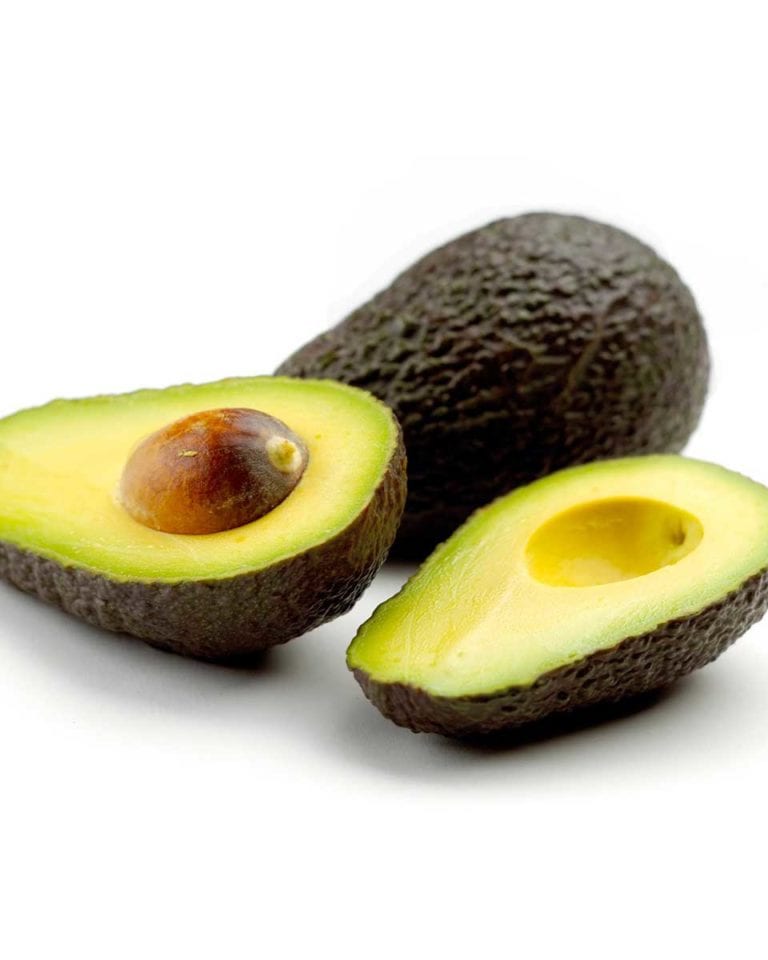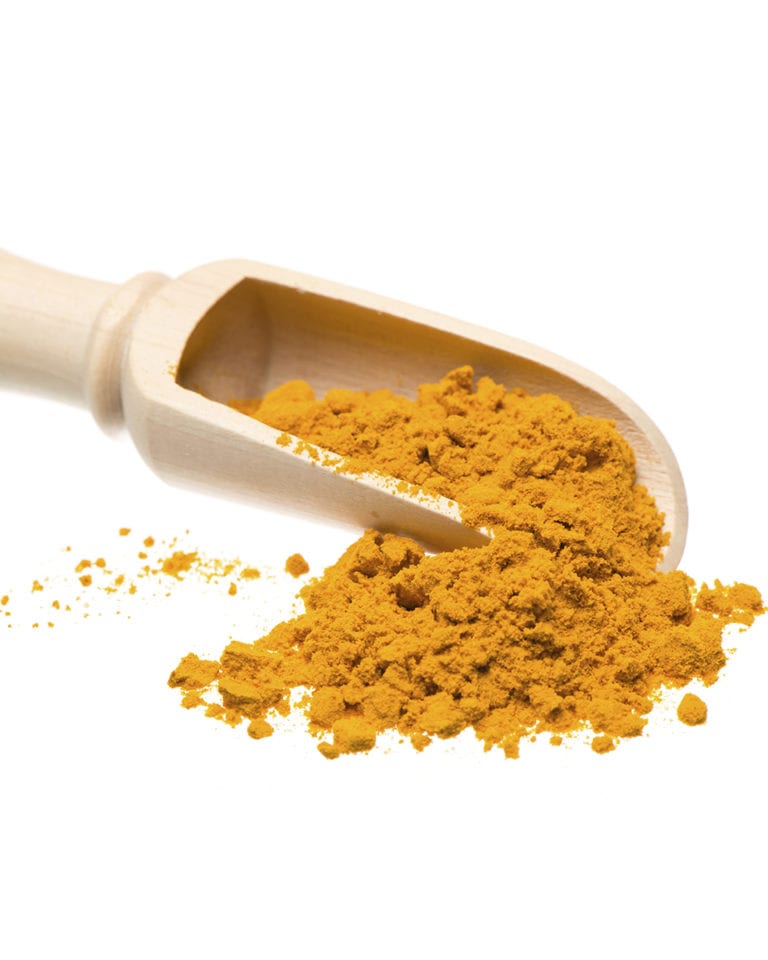Is coconut oil actually good for you?
Once considered a dietary villain, coconut oil is now lauded as a superhero of the food world. But do the facts justify the hype?
Sue Quinn negotiates a slippery topic.
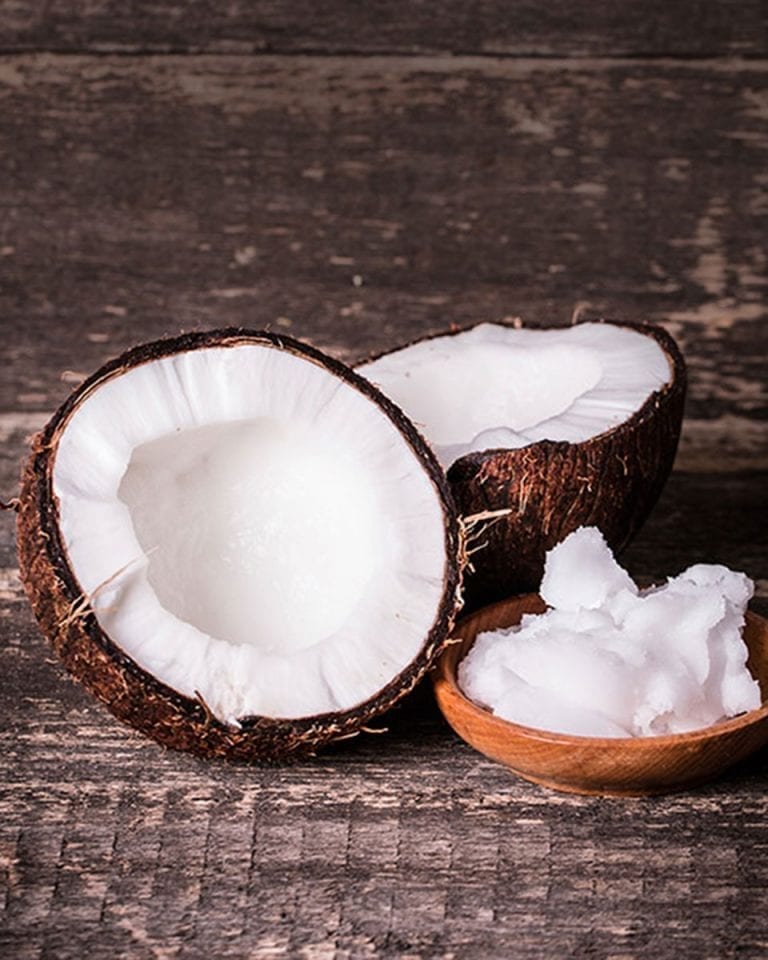
Scan the newspaper headlines and you’d be forgiven for thinking coconut oil is the cure-all elixir of our time. It’s claimed to help prevent heart disease and Alzheimer’s, aid weight loss, heal wounds and boost immunity. Is there anything coconut oil can’t do? Plenty, according to scientists and registered dietitians.
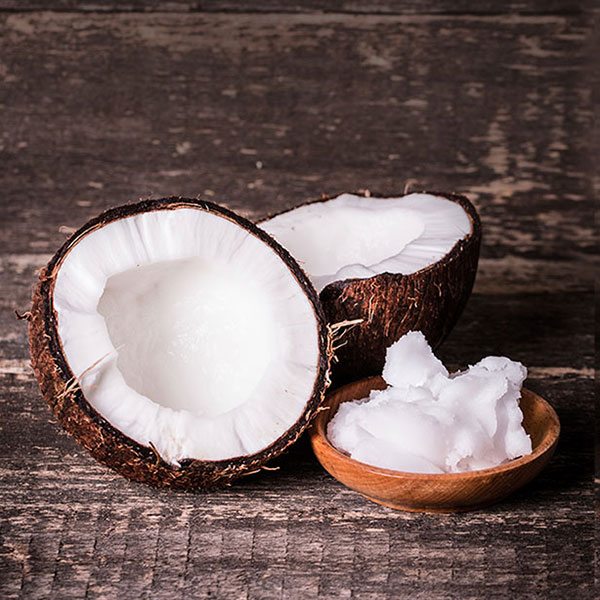
A brief guide
Coconut oil is mostly saturated fat. Solid at room temperature and slow to turn rancid, it’s long been favoured by the food industry for use in products such as chocolate and ice cream because of its creamy texture. In the 1980s, when dietary fat – especially saturated fat – was cited as the major cause of obesity and heart disease, coconut oil was stamped with a nasty reputation. How the tide has turned…
As emerging research suggests that some saturated fats may not be as bad for us as previously thought, the health claims about coconut oil have become louder and consumers have returned to it in droves. But are any of these positive assertions true? Not according to Dr Scott Harding, lecturer in nutrition sciences at King’s College London. “The exaggerated claims aren’t supported by any studies in humans,” he says. “This approach to promoting healthy eating is dangerous and encourages people to spend money on food and supplements that won’t have any positive effects on their health.”
Blood cholesterol and heart health: the controversy
Lauric acid, a saturated fat found in coconut oil, is widely claimed to promote heart health because it boosts ‘good’ HDL cholesterol levels. Proponents of coconut oil say the increase in good cholesterol reduces the risk of heart disease.
But scientists disagree.
“The evidence is that coconut oil has the most harmful effect on LDL cholesterol compared to any other fat,” says Professor Tom Sanders, emeritus professor of nutrition and dietetics at King’s College. “Lauric acid does increase HDL cholesterol, but there’s no evidence that increasing HDL cholesterol has any beneficial effect on heart disease.” Cholesterol charity Heart UK advises people who want to lower their blood cholesterol to avoid coconut oil. It’s worth noting that coconut oil is 90 per cent saturated fat – more than butter (about 60 per cent) and lard (around 32 per cent).
The germ destroyer?
Coconut oil is also claimed to have antimicrobial qualities that can destroy viruses, bacteria and other germs. One popular US health writer (who also sells coconut oil on his website) says it can even destroy viruses such as HIV, herpes, influenza and measles. “The health claims linking the consumption of coconut oil to protecting against infection are utter bunkum and not based on any trials in human beings,” says Professor Sanders.
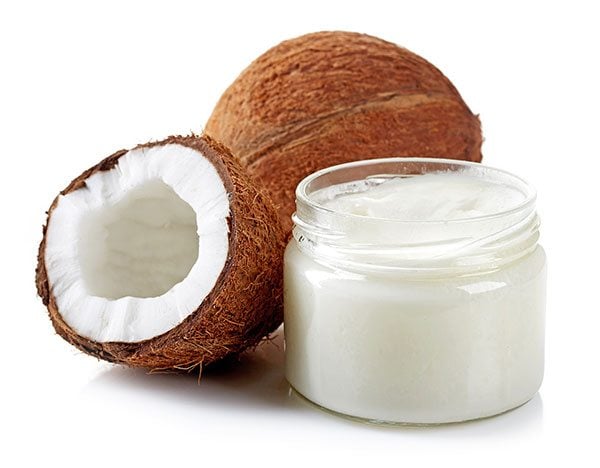
Weight loss
Coconut oil is sometimes touted as a ‘skinny fat’ because it contains medium chain triglycerides (MCTs). Some small studies have found that dieters who used pure MCT oil lost more weight than those who used vegetable oil. But dietitians point out that coconut oil is not the same as MCT oil.
“There are very few studies in humans that have measured the effect of coconut oil itself on weight loss, and those which have been published are of poor quality,” says Dr Stacey Lockyer, nutrition scientist with the British Nutrition Foundation.
“At the moment there is no good evidence to support the claim that coconut oil is better for weight loss than other fats. Importantly, pure fats are the most calorific food sources at 9 calories per gram, so eating large amounts of any fat is not a good strategy for weight management.”
Alzheimer’s disease
What of claims that coconut oil can treat Alzheimer’s disease by providing an alternative energy source for people whose brains are unable to use glucose? Sadly, there’s no evidence for it, says Dr Doug Brown, Director of Research and Development at the Alzheimer’s Society. “There’s also a lack of data to show what long-term effects large quantities of coconut oil could have on the brain,” he adds. The results of a clinical trial exploring whether coconut oil may be useful for Alzheimer’s patients are due in 2017.
The bottom line?
Coconut oil is okay to cook with now and then (unless you’re trying to reduce your cholesterol), but it is no health food. There’s no credible evidence to back up its so-called attributes. The fats we should be eating most of are polyunsaturated and monounsaturated fats, found in olive oil, avocados, nuts and oily fish. There’s a wealth of research from respected bodies including Harvard Medical School and the British Heart Foundation to show that these fats are good for heart health.
Subscribe to our magazine
Food stories, skills and tested recipes, straight to your door... Enjoy 5 issues for just £5 with our special introductory offer.
Subscribe
Unleash your inner chef
Looking for inspiration? Receive the latest recipes with our newsletter



